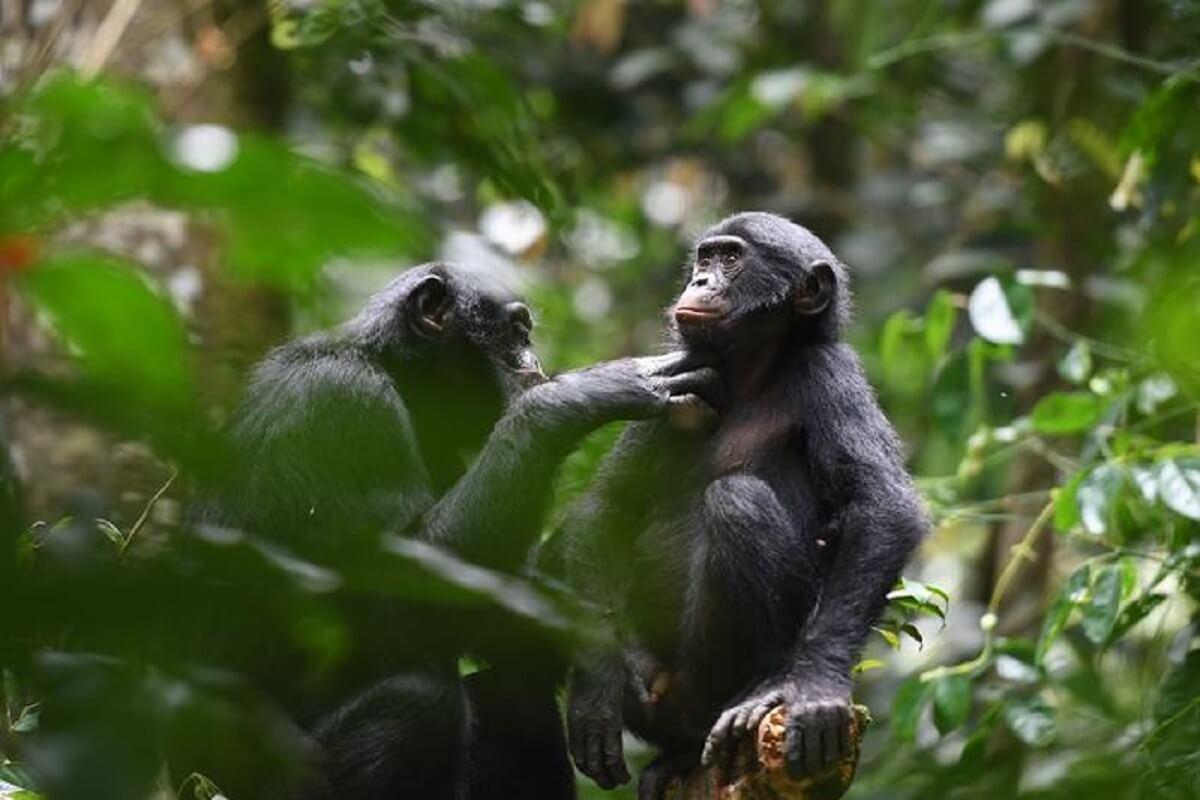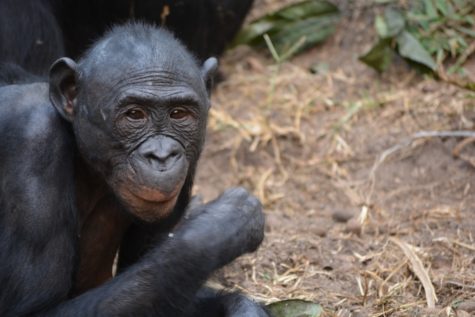
Researchers examined pro-social behaviors of wild bonobos. (Credit: Martin Surbeck/Harvard University)
CAMBRIDGE, Mass. — Humans are not the only species capable of forging friendships with their neighbors, as bonobo monkeys also exhibit the ability to develop “strong and strategic” cooperative relationships, new research reveals.
A collaborative research effort between scientists from Harvard University and the German Primate Centre has been investigating the behavior of these endangered primates, who are closely related to humans. Their habitat in the depths of the Congolese jungle was the focus of this study.
The findings indicate that bonobos demonstrate cooperation that reaches beyond their immediate social groups. This is particularly notable given the “remarkable levels of tolerance” observed between different bonobo groups, which is a stark contrast to the intergroup relations of chimpanzees.
How bonobos' and chimps' behavior differs
Researchers suggest that insights from both chimps and bonobos, humanity's closest living relatives, could provide clues about ancestral human behaviors related to cooperation and conflict. Although chimps and bonobos live in similar social structures, their intergroup interactions are “fundamentally different.” Chimps' relationships are primarily antagonistic, with violence being a common occurrence. This has led many to believe that group hostility and violence are intrinsic to human nature.
However, bonobos present a contrasting narrative. Due to their habitat in the remote regions of the Democratic Republic of the Congo, bonobos are notoriously challenging to study. The Kokolopori Bonobo Reserve, directed by Harvard Professor Martin Surbeck, has been pivotal in facilitating this research.

“Research sites like Kokolopori substantially contribute not only to our understanding of the species’ biology and our evolutionary history but also play a vital role in the conservation of this endangered species,” says Professor Surbeck in a media release.
The scientists note that different bonobo groups, when they encounter each other, often travel, rest, and feed together without the lethal aggression seen in chimps.
“Tracking and observing multiple groups of bonobos in Kokolopori, we’re struck by the remarkable levels of tolerance between members of different groups,” says Dr. Liran Samuni from the German Primate Centre. “This tolerance paves the way for pro-social cooperative behaviors such as forming alliances and sharing food across groups, a stark contrast to what we see in chimpanzees.”
‘Challenges existing theory'
The study reveals that bonobos are selective in their interactions, forming cooperative bonds with specific individuals from other groups who are more likely to reciprocate, creating strong and mutually beneficial relationships. The researchers point out that such social connections echo the cooperation found in human societies, suggesting that peaceful intergroup relations and extending prosocial behavior to others is not uniquely human.
“The ability to study how cooperation emerges in a species so closely related to humans challenges existing theory, or at least provides insights into the conditions that promote between-group cooperation over conflict,” Dr. Samuni highlights.
The team emphasizes that bonobo social cooperation bears resemblance to human interaction, proposing that culture and social norms are not prerequisites for intergroup cooperation. They conclude that the bonobos demonstrate that continual warfare between neighboring groups is not an inevitable part of human evolution.
The study is published in the journal Science.
South West News Service writer Stephen Beech contributed to this report.










